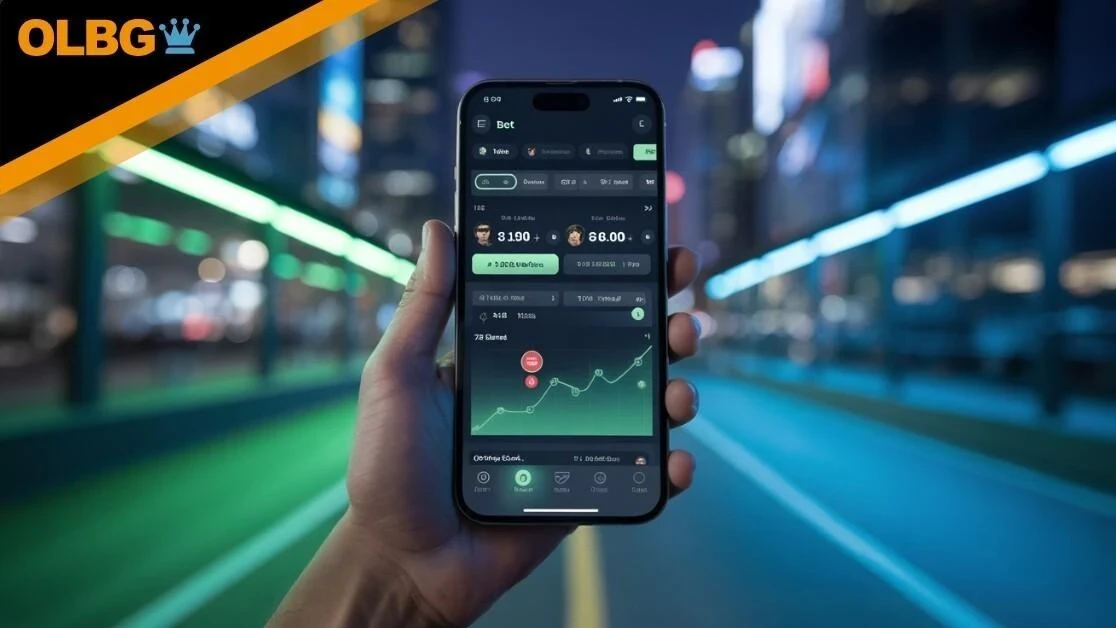
I've spent over 20 years inside the betting industry. I'll guide you to avoid the hype, ignore the noise, and steer clear of the common pitfalls that catch out everyday punters.
5 Countries that Gamble the Most
Gambling has evolved from a clandestine pastime to a mainstream industry, generating over $500 billion globally each year. From the bustling casino floors of Macau to mobile sports betting apps in New Jersey, the landscape of gambling is rapidly changing.
At OLBG, we’ve delved into the countries with the highest gambling engagement, the most popular games, and the cultural, legal, and technological factors influencing global gambling habits.
Which countries bet the most? How does overall gambling participation look by country? How do gambling behaviours vary across different countries? And more.
Australia: The Reigning Champion of Gambling Engagement

Australia leads the world in gambling participation, with 78% of adults engaging in gambling activities in 2022. The prevalence of online slot games (pokies) in pubs, clubs, and casinos contributes to this high engagement. Notably, Australians experience the highest per capita gambling losses globally, averaging $1,276 annually.
Norway: Online Gambling’s Quiet Powerhouse

Norway boasts a significant online gambling presence, with projections indicating the online gambling market will reach $762.3 million by 2028. Despite strict regulations, the country's digital-first approach and widespread mobile casino access have made online gambling increasingly popular.
South Africa: Betting Amid Economic Pressures

South Africa's online gambling industry is experiencing rapid growth, with market revenues expected to reach $518.2 million by 2029. Factors such as high youth unemployment and limited recreational alternatives drive this trend, with sports betting, particularly on football and horse racing, dominating the market.
United Kingdom: Mature, Regulated, and Widespread

The UK maintains a well-regulated gambling environment, with 46% of adults participating in some form of gambling in the past four weeks. Online gambling participation stands at 17% when excluding lotteries. The UK Gambling Commission ensures that licensed operators adhere to stringent safety and transparency standards.
United States: A Sleeping Giant Awakens

Since the 2018 repeal of PASPA, the US has seen a surge in legalized sports betting. In 2023, 49% of American adults reported engaging in some form of gambling. The online gambling market is projected to reach nearly $40 billion by 2029, with gross gaming revenue surpassing $5.86 billion in February 2025.
The Global Top 10: Who's Leading in Online Gambling?
Based on the latest data, here are the countries where online gambling is most prevalent:
| Rank | Country | Online Gambling Penetration |
|---|---|---|
1 | Norway | Projected market volume of $762.3 million by 2028 |
2 | South Africa | Market revenues expected to reach $518.2 million by 2029 |
3 | Sweden | 80% of all gambling activity is online |
4 | New Zealand | 26.2% participation |
5 | United Kingdom | 17% online gamblers (excluding lotteries) |
6–7 | Latvia & Lithuania | High online gambling engagement |
8 | Australia | Significant online gambling growth during COVID-19 |
9 | United States | Rapid growth since 2018; projected market of $40 billion by 2029 |
10 | Japan | High loss rate despite tight regulation |
What Google Searches Reveal About Gambling Habits
Google Trends provides insights into public interest and curiosity about gambling, reflecting broader behavioural patterns.
Mobile-First Gambling is Now the Norm. Searches for terms like “betting apps,” “casino mobile,” and “slots on phone” have seen consistent growth globally. As of 2025, 80% of online gambling users access platforms through smartphones.
Across Europe, North America, and parts of Asia, top-searched phrases include “free spins” “no deposit bonus,” and “best casino bonus.” These searches indicate a strategic approach to gambling, with players seeking value and promotions.
Game Preferences: What the World Wants to Play
- Online slots trends are especially prominent in Europe and Oceania.
- "Live blackjack” searches spike during sports or holiday seasons.
- "Crash games” and other quick-fire betting formats have gained popularity, particularly among Gen Z audiences.
- In Japan, searches for “pachinko” remain dominant, reflecting the game's cultural significance.
Regional Differences: What Shapes How (and If) People Gamble?
Several factors influence gambling behaviours across different regions:
| Factor | Impact |
|---|---|
Regulation | Legal markets offer more access, marketing, and generate higher search interest. |
Cultural Norms | In regions like Italy or Macau, gambling is culturally embedded; in others, it's taboo. |
Technology | Higher smartphone and internet access correlate with increased online gambling engagement. |
Economic Pressure | Countries facing youth unemployment or economic downturns often see a rise in gambling activities. |
Access | Regions with more online operators or land-based casinos experience higher engagement levels. |
It's important to note that Google searches may not always translate to actual gambling activity. Factors like VPN usage, data anonymisation, and curiosity-driven searches can inflate interest metrics without corresponding betting behaviour.
Final Thoughts: The Gambling Landscape is Changing — Fast
From slot machines in Sydney to sportsbook apps in Michigan, gambling has become a global lifestyle activity. Digital innovation, mobile-first design, and evolving legislation have made gambling more accessible and personalised than ever before.
However, it's not just about increased betting; it's about smarter, more strategic gambling habits. Search trends indicate that players prioritise value, legality, and convenience.
As emerging markets like Brazil and India move toward regulation, we can expect both participation numbers and related search trends to rise significantly.
Methodology
Statista: Provided global gambling revenue figures and market projections.
ABC News: Offered insights into Australia's gambling participation rates.
BusinessTech South Africa: Supplied data on South Africa's online gambling market growth.
UK Gambling Commission (UKGC): Shared statistics on UK gambling participation and regulatory frameworks.
American Gaming Association (AGA): Presented data on US gambling behaviours and attitudes.
Google Trends: Analysed global search trends related to gambling terms.



